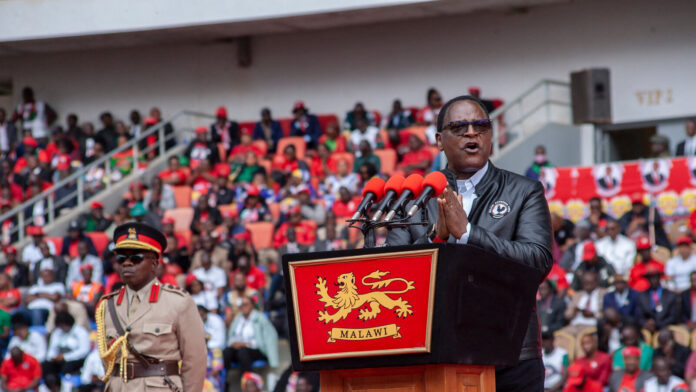On Tuesday, Malawians return to the polls for a presidential election that pits two familiar faces against each other: incumbent president and evangelical pastor Lazarus Chakwera (70), and former president and law professor Peter Mutharika (85). Yet, beyond the choreography of democracy, what unfolds is the bleak repetition of a power struggle between two political veterans whose past mandates have both failed to lift a nation in economic despair.
An Economy on the Brink, a Nation Out of Patience
More than 70% of Malawi’s 21 million citizens live on less than $2.15 per day, according to the World Bank. Inflation has soared past 27% year-on-year, while agriculture—Malawi’s economic backbone, employing over 80% of the workforce—has been crippled by two droughts and a devastating cyclone since 2023. The Malawi presidential election 2025 is less a contest of ideas than a desperate grasp for stability.
Seventeen candidates are officially running, but the real contest, analysts agree, is between the incumbent Chakwera and his predecessor Mutharika. Both have ruled before. Both have disappointed. And now, both promise to “fix” what they have either mismanaged or failed to prevent.
A Choice Between the Lesser of Two Failures
“It’s a choice between two disappointments,” says political analyst Chris Nhlane. “Both men represent wasted potential and broken hopes. Yet Malawians are forced once again to choose the lesser evil.”
Despite attracting large crowds in their final rallies over the weekend, the candidates face a skeptical youth electorate. Around 60% of Malawi’s 7.2 million registered voters are under 35, and civil society organizations have mobilized to encourage turnout. Still, many young voters remain disillusioned.
“I’d rather go to work than vote,” says Joseph, a 30-year-old self-employed trader. “Nothing ever changes.”
Charles Chisambo, a 34-year-old activist, is more direct: “We don’t need another leader—we need someone who can fix the economy.”
Chakwera’s Continuity vs. Mutharika’s Nostalgia
Running under the Malawi Congress Party, Chakwera has campaigned on continuity, highlighting the delivery of roads, schools, and hospitals. He acknowledged citizens’ complaints about cost of living and food shortages, promising at a rally in Lilongwe to “fix everything.” Days earlier, he announced a significant cut in fertilizer prices—a last-minute measure seen by many as electioneering.
But public sentiment remains strained. Chronic fuel shortages, a collapsing currency, and unsustainable debt continue to haunt daily life. “The only real challenge is the economy—and that’s a global problem,” says Lydia Sibale, 48, as she queues for fuel in Lilongwe.
Chakwera’s first mandate followed a historic 2020 election re-run, after the courts annulled the 2019 results for fraud. He won with nearly 59%, unseating Mutharika, then seeking re-election under the Democratic Progressive Party.
Today, Mutharika seeks a comeback, buoyed by nostalgia for what some see as a more competent administration. “President Chakwera’s honeymoon has ended in economic failure,” notes analyst Mavuto Bamusi.
Speaking in Blantyre, Mutharika pledged to “rescue this country”. For voters like Thula Jere, a 31-year-old student, Mutharika remains a credible choice: “He knows how to manage the economy and cares about Malawians.”
A Contested Future, A Tired Electorate
If no candidate secures more than 50% of the vote, a runoff will be held within 60 days. But beyond the procedural aspects, what emerges from this election is a portrait of a fatigued nation—economically, politically, and emotionally.
In the absence of new ideas, the Malawi presidential election 2025 risks becoming just another episode in a long saga of political recycling—while the population continues to endure the brunt of policy failure.



